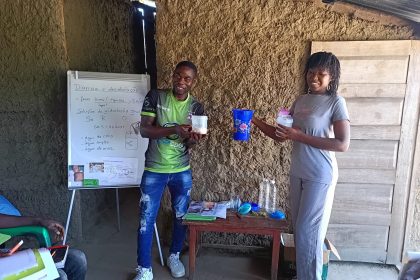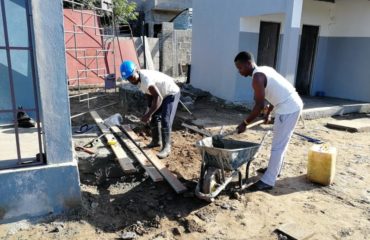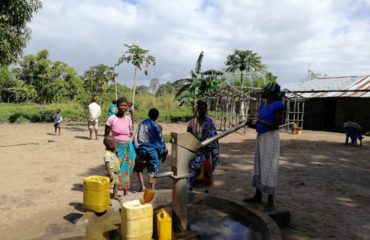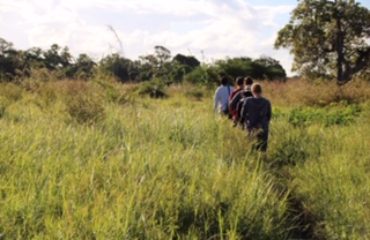
We adapted our Basic Healthcare Course (made up of 5 months training) as a result of various challenges that we were facing each time and condensed it into a mobile seminar consisting of twenty course units that can be customized based on felt needs and interest of the host village. Depending on the desired focus and depth of the teaching content, it’s possible to book up to four seminar weeks. The target group, on one hand, includes missionaries who already have a location of influence and where they already face medical challenges in their daily ministry and personal lives. On the other hand, we aim to include interested local people who have a key role in their community in which they seek to invest into practically. We consider this seminar not just to be a source of valuable health information and practical aid but also an open door to reach people and to make the love of Jesus tangible.
The seminars are comprised of theoretical teachings, which include practical training elements with visual aids such as anatomical models, posters, photo material, medical instruments, and material for practical exercises. We also use videos and slide shows where appropriate, but generally the teaching units are designed so that they can be taught outdoors and without electricity. This mobile healthcare training model allows us to train locals of all academic levels, from illiterate people to university graduates, in a reasonably short time at extremely low cost as the participants can come for lectures and practicals, but sleep at home. Not one seminar looks exactly like the other as it is tailored to a specific audience and place each time.
The theory includes the following basics:
• Anatomy and physiology
• Recognition, prevention, and care of common diseases such as malaria, HIV/AIDS, pneumonia, throat and ear infections, skin- and diarrheal diseases and more.
• Preparation of drinking water, filter systems and the construction of simple sanitary facilities
• Assistance in pregnancy and a natural birth process
• Prevention and management of the most common birth complications
• Healthy nutrition, lifestyle, and hygiene
• Forms of malnutrition and vitamin deficiencies
• Life-saving skills, traumatic injuries, wound care and transport of an injured person
Practical elements include
• Outreaches together with the local public health clinics and church congregations
• Conducting of mobile clinics
• Conveying relevant health messages to the community using creative ways that are easy to understand (through drama, role play, interactive songs etc.)
• Prayer for our patients and an open ear for mental health problems






